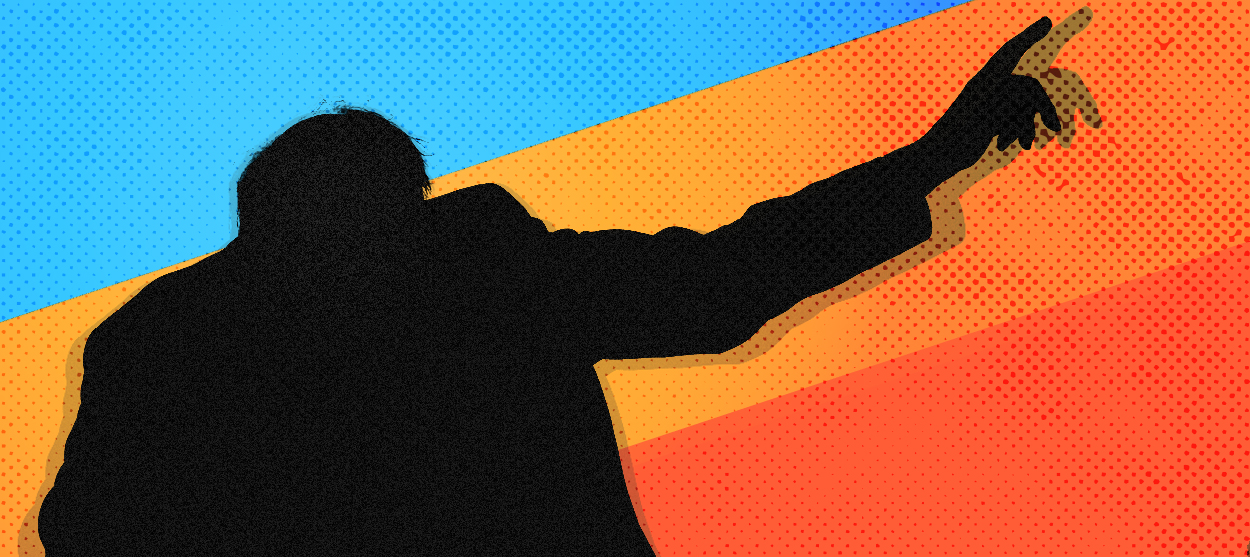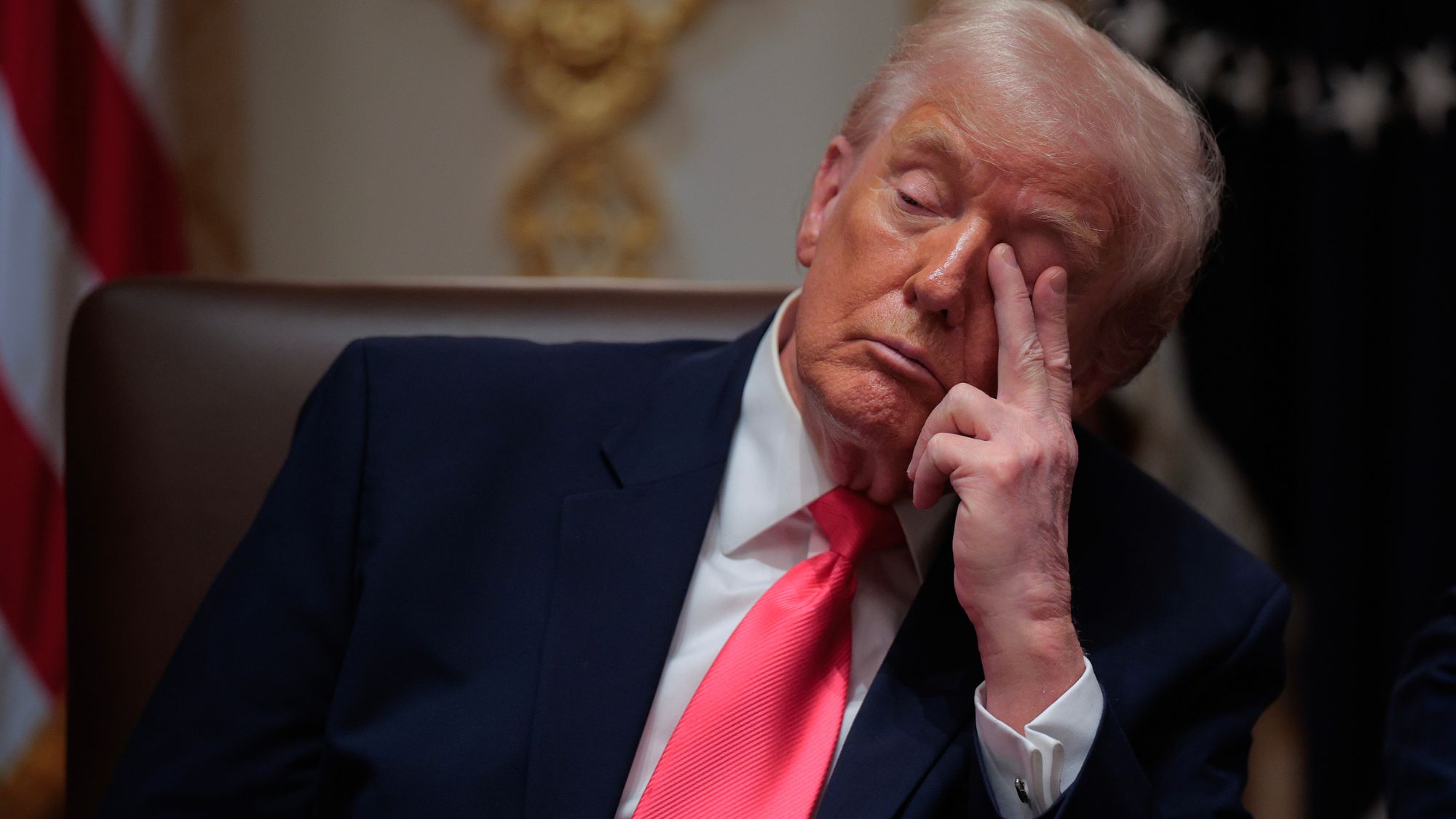Is Bernie Sanders actually surging?
There are a few possible explanations for the Vermont senator's recent rise in the polls


A free daily email with the biggest news stories of the day – and the best features from TheWeek.com
You are now subscribed
Your newsletter sign-up was successful
I must admit that I was pleasantly surprised to see recently that in addition to leading in both Iowa and New Hampshire, Bernie Sanders is now at at the top of at least one national Democratic primary poll. Like many observers who have a difficult time believing that Joe Biden will have the staying power to make it through the primary season all the way to the Democratic convention and beyond, I have been at a loss for a while when asked to name the candidate I think most likely to represent the party in November.
Could it actually be Bernie's turn? His path to the nomination has always been clear: let the majority of moderate and centrist voters split between a handful of candidates while keeping a firm hold on progressives, for whom he has been the default choice. (It was, after all, the absence of any other serious establishment candidate that allowed Hillary Clinton to run away with the nomination in 2016.)
It was never going to be an easy road, though. With the possible exception of Tulsi Gabbard, who is currently suing the party's last presidential candidate for defamation, there is no figure in Democratic politics who is more widely (and indeed openly) reviled by the party's elites. Hillary Clinton says that no one likes Bernie, which is not false if by "no one" she means no one of any importance within the DNC and the party's leadership in both houses of Congress. Even Barack Obama, who has otherwise observed a studied neutrality during the present election cycle, has suggested he is willing to intervene personally in order to prevent Sanders from winning his party's nomination.
The Week
Escape your echo chamber. Get the facts behind the news, plus analysis from multiple perspectives.

Sign up for The Week's Free Newsletters
From our morning news briefing to a weekly Good News Newsletter, get the best of The Week delivered directly to your inbox.
From our morning news briefing to a weekly Good News Newsletter, get the best of The Week delivered directly to your inbox.
Does this mean that Sanders has no chance? Absolutely not. In the meantime, though, it is worth asking how a candidate whose share of the primary electorate seemed to be fixed at well below 20 percent has suddenly risen to the top.
There are several possible explanations. Each of them is premised upon the idea that polling is an art rather than a science and one that has fallen into a perhaps inexorable decline. Voters are harder to reach than ever, and a sample made up exclusively of those willing to participate in such surveys is unlikely to be representative of any large group.
The first plausible explanation for Sanders's higher numbers is simply that until now the polls have failed to capture the breadth of his support. It would not be the first time that he has been painfully underestimated. On the eve of the 2016 Democratic primary in Michigan, polls suggested that Sanders was trailing Hillary Clinton by some 30 percent. He went on to win, albeit narrowly. It seems to me entirely possible that, like Donald Trump, Sanders is a candidate who benefits — if that is the right verb — from what sociologists call the "shy Tory" effect: for one reason or another, voters who are reluctant to tell strangers that they support him nevertheless end up pulling the lever on Election Day.
The opposite, of course, could turn out to be true. I would be only slightly surprised if it were the case that recent state and national polls are in fact exaggerating support for Sanders. This is not incompatible with the possibility that voters who have only recently begun to take an interest in the primary election have settled on him. In fact, late decision makers surging in one direction could very easily lead to analysts drawing the wrong conclusions. One candidate can be the beneficiary of all the recent momentum in an election without ever reaching anything like a majority because so many voters have already made up their minds.
A free daily email with the biggest news stories of the day – and the best features from TheWeek.com
What cannot, I think, be considered very likely is the idea that hundreds of thousands, perhaps even millions of likely Democratic voters have switched candidates several times over the course of the last few months. This is the case even though it is the only conclusion that could be drawn if one assumes that polls are even slightly accurate representations of actual opinion among voters. It is also why facile explanations for Sanders' rise like this one involving a purely hypothetical back-and-forth between Pete Buttigieg and Elizabeth Warren should be rejected out of hand: No one is flitting to and fro between Sanders and Warren and Mayor Pete — and Biden and Michael Bloomberg and, no doubt, Donald Trump and Bill Weld as well. Voters have actual preferences and ideological priors; the extent to which they change their minds after settling on a candidate is vastly overstated.
Whether Sanders' apparent (and admittedly slight) lead turns out to be illusory remains to be seen. Even victories in both Iowa and New Hampshire will not guarantee that he wins the Democratic nomination. The real test is whether he will able to overcome his past struggles with minority voters, especially in the South. (Recent polling also suggests that he is doing exactly this.) If he can win on Super Tuesday, Biden and Obama and Nancy Pelosi (to say nothing of Bloomberg) should be worried.
So should Donald Trump.
Want more essential commentary and analysis like this delivered straight to your inbox? Sign up for The Week's "Today's best articles" newsletter here.
Matthew Walther is a national correspondent at The Week. His work has also appeared in First Things, The Spectator of London, The Catholic Herald, National Review, and other publications. He is currently writing a biography of the Rev. Montague Summers. He is also a Robert Novak Journalism Fellow.
-
 What to know before filing your own taxes for the first time
What to know before filing your own taxes for the first timethe explainer Tackle this financial milestone with confidence
-
 The biggest box office flops of the 21st century
The biggest box office flops of the 21st centuryin depth Unnecessary remakes and turgid, expensive CGI-fests highlight this list of these most notorious box-office losers
-
 The 10 most infamous abductions in modern history
The 10 most infamous abductions in modern historyin depth The taking of Savannah Guthrie’s mother, Nancy, is the latest in a long string of high-profile kidnappings
-
 The billionaires’ wealth tax: a catastrophe for California?
The billionaires’ wealth tax: a catastrophe for California?Talking Point Peter Thiel and Larry Page preparing to change state residency
-
 Mamdani vows big changes as New York’s new mayor
Mamdani vows big changes as New York’s new mayorSpeed Read
-
 Bari Weiss’ ‘60 Minutes’ scandal is about more than one report
Bari Weiss’ ‘60 Minutes’ scandal is about more than one reportIN THE SPOTLIGHT By blocking an approved segment on a controversial prison holding US deportees in El Salvador, the editor-in-chief of CBS News has become the main story
-
 Trump’s poll collapse: can he stop the slide?
Trump’s poll collapse: can he stop the slide?Talking Point President who promised to ease cost-of-living has found that US economic woes can’t be solved ‘via executive fiat’
-
 Has Zohran Mamdani shown the Democrats how to win again?
Has Zohran Mamdani shown the Democrats how to win again?Today’s Big Question New York City mayoral election touted as victory for left-wing populists but moderate centrist wins elsewhere present more complex path for Democratic Party
-
 Millions turn out for anti-Trump ‘No Kings’ rallies
Millions turn out for anti-Trump ‘No Kings’ ralliesSpeed Read An estimated 7 million people participated, 2 million more than at the first ‘No Kings’ protest in June
-
 Ghislaine Maxwell: angling for a Trump pardon
Ghislaine Maxwell: angling for a Trump pardonTalking Point Convicted sex trafficker's testimony could shed new light on president's links to Jeffrey Epstein
-
 The last words and final moments of 40 presidents
The last words and final moments of 40 presidentsThe Explainer Some are eloquent quotes worthy of the holders of the highest office in the nation, and others... aren't
